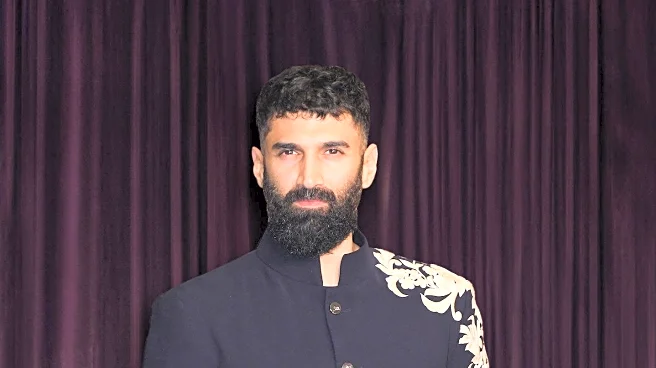What's Happening?
Jordan Peterson, a controversial psychologist, is taking a break from his professional activities due to a debilitating illness caused by mold exposure, as announced by his daughter, Mikhaila Peterson. She revealed that her father is suffering from chronic inflammatory response syndrome (CIRS), a condition not widely recognized by mainstream medicine. This illness has been exacerbated by recent exposure to a moldy environment while cleaning out a relative's house. Peterson's health issues have been ongoing since 2017, with symptoms managed by a strict carnivore diet. The condition has led to canceled events and appearances, impacting his public engagements.
Why It's Important?
Jordan Peterson's health challenges underscore the complexities of mold-related illnesses and the lack of recognition by the medical community. His situation highlights the need for greater awareness and research into conditions like CIRS, which can have significant impacts on individuals' lives. Peterson's influence in conservative circles and his role in public discourse make his health issues particularly noteworthy, as they affect his ability to engage with his audience. The revelation also brings attention to the broader issue of indoor air quality and its potential health implications.
What's Next?
Peterson's recovery process may involve further medical treatment and adjustments to his lifestyle to manage CIRS symptoms. As awareness of mold-related illnesses grows, there may be increased advocacy for recognition and treatment within the medical community. Peterson's break from public life could lead to changes in his professional commitments and influence on conservative media. His daughter has expressed optimism about his recovery, suggesting potential future engagements once his health improves.
Beyond the Headlines
The situation raises questions about the intersection of health, lifestyle choices, and public perception. Peterson's adherence to a carnivore diet and his outspoken views on health and wellness have been controversial, and his illness may prompt discussions on alternative health practices. The lack of recognition for CIRS by mainstream medicine highlights potential gaps in healthcare systems and the need for more inclusive approaches to diagnosing and treating complex conditions.









